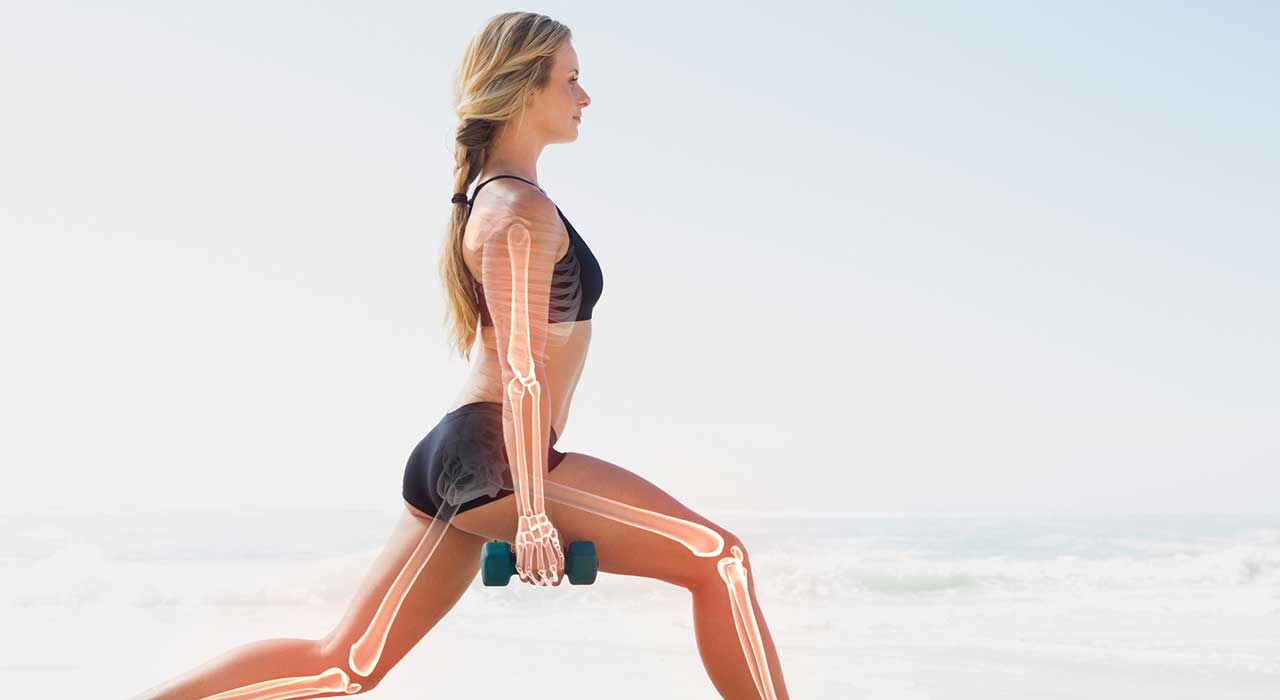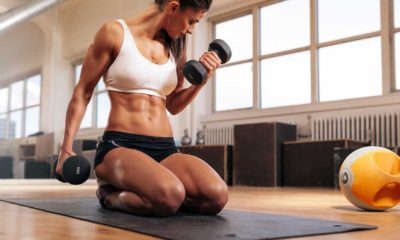Nutrition
The Best Foods To Help Prevent Bone Injuries
It’s a hard knock life for many of today’s athletes as sports like rugby, ice hockey and MMA bring with them an increased likelihood of bone fractures and demineralisation. The following recommendations will help you prevent and/or rehabilitate from bone injury, by providing the nutrients to support bone metabolism.
Protein
Bone is more than just minerals. It consists of a matrix of calcium phosphate and the protein collagen, which helps provide it a certain amount of elasticity; preventing it from being too brittle. We should aim for regular protein feeds in order to support these tissues.
Collagen is made primarily of the amino acids proline and glycine, and so eating proteins rich in these amino acids can theoretically help bone formation.
Boiling a chicken carcass will make a great, glycine-rich homemade stock to support joint and bone health; use it as a base for soups, stews and rice dishes. However, glycine has also been shown to regulate inflammation, and in some animal studies equal to/superior to glutamine supplementation in healing the gut and regulating amounts of stress-hormones.
Dairy proteins like milk, cottage cheese and yogurt help improve body composition, studies have indicated, and will simultaneously benefit your bones.
Minerals
Obviously it is essential to include calcium and phosphorus in the diet when eating for bone health, but other minerals are also important in both structural and functional roles.
Half of the body’s magnesium is found in bone, while minerals also play their roles in configuring enzymes, regulating genes and signalling to cells involved in bone formation and re-absorption.
Other minerals key to bone metabolism include zinc, copper, manganese, potassium and boron. Eating nuts, seeds and dark-green veg should have you covered here.
Vitamins
Bone production also depends on vitamins D and K. Certain cereals, milk drinks and low-fat spreads are fortified with vitamin D. Look out for these products which, although only making a slight dent compared to getting adequate sunlight exposure, will make a difference to those verging on deficiency.
Good natural sources would be foods rich in ‘good fats’ (as vitamin D is a fat-soluble vitamin), in particular cheese, sardines, salmon and eggs. Oily fish will also exert anti-inflammatory effects for rehabilitation
Vitamin K (or specifically vitamin K2 in bone metabolism) works by modifying proteins so that they can interact with calcium to support bone formation. It’s found in high levels in green, leafy vegetables; so cabbages, greens, broccoli and sprouts would be just the ticket. Spinach is a particularly good exponent.
Vitamin C is also essential for collagen formation, so consider fruit as part of your carb-refuelling strategies.
Bone meal
How to fit bone-bettering food into your training diet
Pre/intra training
Ingesting quality proteins such as milk and/or whey before and throughout training helps optimise protein synthesis so essential for bone-formation.
Recovery meal
Vary intake according to training load and weight, and increase intake of dairy proteins, nuts/seeds, and dark green vegetables for calcium, phosphorus, magnesium and zinc.
Supplements
Many bone supplements exist on the market that contain calcium as well as minerals needed for bone mineralisation. The calcium in hydroxyapatite (MCHA) has been shown to be extremely bio-available compared to other forms, and superior to calcium gluconate in stimulating the incorporation of calcium and phosphorus into bone. Vitamin D supplementation will be beneficial for many athletes living in temperate climes, and is essential for good bone health.
Strengthen your bones with NOW Bone Strength from Bodybuilding.com






















